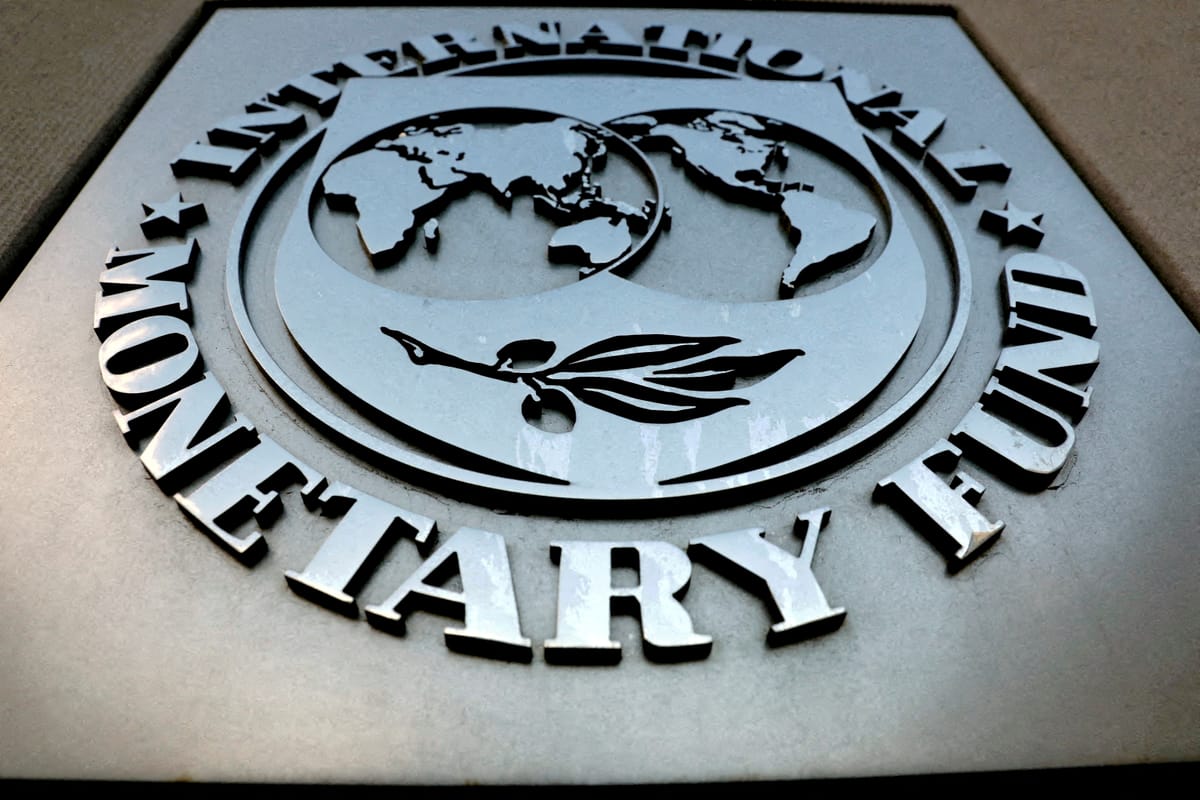The IMF says AI could disrupt a major chunk of jobs around the world – nearly 40%
The International Monetary Fund (IMF) recently looked into how AI might affect jobs globally.

A few minutes every morning is all you need.
Stay up to date on the world's Headlines and Human Stories. It's fun, it's factual, it's fluff-free.
The backstory: Generative artificial intelligence (AI), like ChatGPT, is gaining popularity for its ability to create realistic content from basic prompts. In November 2022, when OpenAI’s ChatGPT hit the scene, it caused quite a stir in the tech world, grabbing the attention of major players like Google and Microsoft. Companies are putting big investments into this technology, but it's also causing concern among workers about job security. For example, BuzzFeed, a digital media company that has confirmed it’s using OpenAI’s tech in its operations, decided to close its news department and cut around 15% of its staff last April.
In the tech world this year, there's a mix of job cuts and increased investments in AI. Consider big players like Google and Amazon – despite their ongoing AI projects, recent layoffs suggest there may be a more intricate situation at play. Discord, Unity Software and Duolingo are also reducing their workforces, aligning with a broader industry trend.
More recently: Last year, Goldman Sachs raised a concern, saying that generative AI might affect 300 million jobs globally. But the bank also mentioned that this tech could boost productivity and growth and increase global GDP by up to 7% over time.
The development: The International Monetary Fund (IMF) recently looked into how AI might affect jobs globally. Although the IMF acknowledged in a blog post that AI could have benefits like boosting productivity and global growth, it also said it could deepen inequality and will certainly have a big effect on the job market. IMF findings suggested that almost 40% of jobs worldwide could be affected. And advanced economies in places like the US and UK may feel it more than others, with around 60% of the job market exposed to and affected by AI. In “lower income” nations, like Burundi and Sierra Leone, that estimate hovers around 26%.
The IMF pointed out that jobs with a “high complementarity” to AI (meaning the tool will help them do their work rather than taking over completely), like those with more responsibility and personal interactions (think surgeons, lawyers, judges), seemed safer in the long run. On the other side, jobs with “low complementarity” to AI, like telemarketing, might be at a higher risk of being displaced. In conclusion, the IMF says the world needs to work on effective ways to leverage all of AI’s potential while still ensuring it benefits humanity.
Key comments:
“For the other half, AI applications may execute key tasks currently performed by humans, which could lower labor demand, leading to lower wages and reduced hiring,” said IMF chief Kristalina Georgieva.
“In most scenarios, AI will likely worsen overall inequality, a troubling trend that policymakers must proactively address to prevent the technology from further stoking social tensions,” said Georgieva.
“We are not swapping the expertise of human experts for AI,” said Duolingo to CNN. “AI is a tool we are using to increase productivity and efficiency, to add new content and improve our courses faster so that we can continue to teach to higher levels of proficiency.




Comments ()